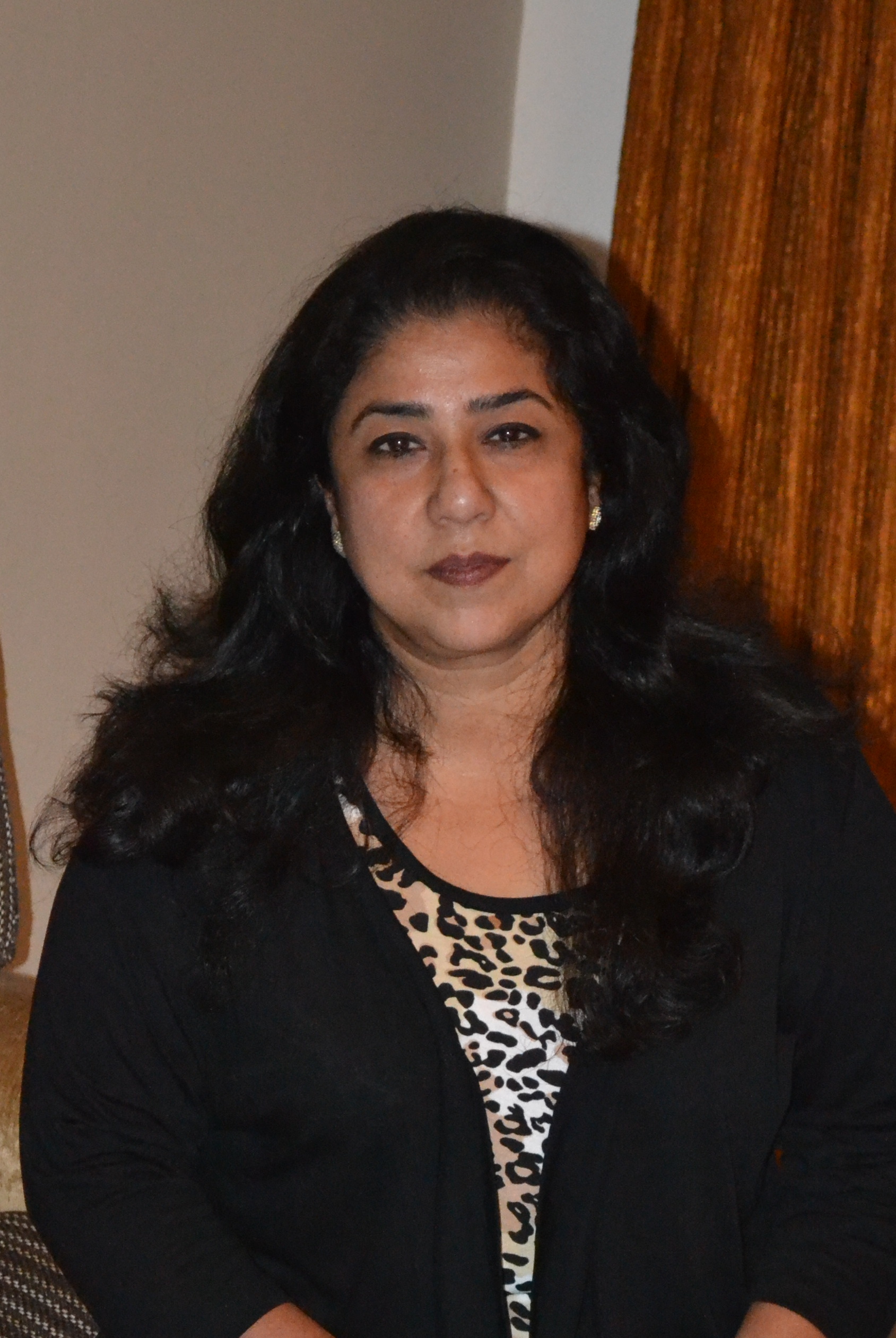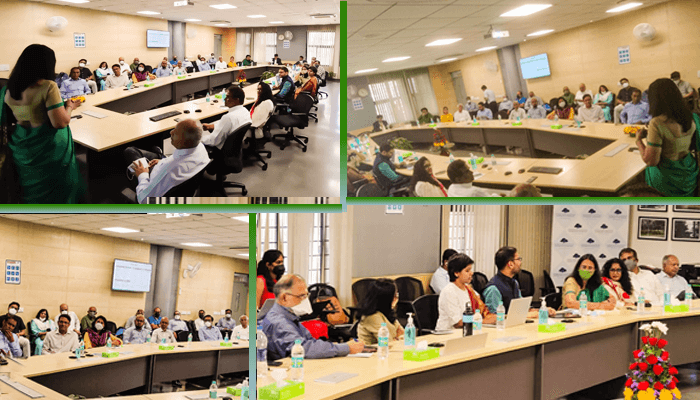AI-driven initiatives may soon be overhauling the collective social initiatives in Rural India. A roundtable with Hysea CSR group and CSR leaders, academia and NGOs explored challenges and possibilities for new tech to catalyze rural transformation in key sectors.
A roundtable organized by the Raj Reddy Centre for Technology and Society (RCTS) on 23 February 2022, brought together an erudite mix of social scientists, NGOs, technologists, research groups, impact funding and CSR organizations. The deliberations looked at pathways that CSR funded emerging technology solutions could forge, to jumpstart transformation in rural education, agriculture and healthcare.
The discussion zoned in on the challenges of new technology, avenues for exploring best practices by NGOs and ways to amplify impact through tech. And listed the criteria that CSR should use to select initiatives and programs to support. Stakeholders identified unmet needs that technology can help address, and looked at sustainable and scalable solutions to be deployed at the grassroots.
Obstacles faced by NGOS and technology experts
As a departure from conventional instruments of CSR, NGOs are embracing emerging technologies such as artificial intelligence & machine learning. However, it was noted that AI and NGOs tend to make uncoordinated dance partners. Speed of adoption is still slow even with the help of external collaborations from industry and academia partners.
Lack of tech-savvy personnel
A key communication gap identified was the lack of clear understanding of the role that technology plays in their line of work, by on-ground personnel. This hampers problem-solving capabilities by technology experts. For instance, social entities are not aware of the quality or quantum of relevant data-sets required and the necessity of digital storage and accessibility. Limited access to technology infrastructure and facilities is a huge barrier for NGOs to adopt tech-based solutions and maintain robust backend support in the long term.
Technology experts and solution designers (NGO, industry/academia) face roadblocks to implementation, like affordability and scalability of the developed solutions. Absence of intelligent datasets for specific problems, lack of end-user friendly solutions for the targeted demographic and the problem of communicating the AI solutions to the end-user were other pitfalls identified.
Shift away from the cookie-cutter AI solution
Can AI be the game-changer for NGOs? Experts saw the necessity to shift the strategy away from trying to force-fit AI to all social problems, to identifying those key issues that were amenable to tech-based solutions. NGOs need to find innovative means of data collection to train their AI algorithms, predict and maintain tech models. There are countless opportunities where emerging technologies can become the base to amplify impact.
Learning Curves shortened by AI
AI can be the alchemist in the education sector, if it can effectively reach the large number of beneficiaries at the bottom of the pyramid. Various innovative tech solutions like gamification of learning and low-cost learning management systems (LMS) can support personalized learning content at scale, through AI-driven algorithms.
The discussion also looked at tools to reduce admin workload of teachers and promote continuous learning and knowledge communication for amplification of impact. Experts saw the potential of building local language platforms for students especially from impoverished backgrounds, to access resources and empower their career goals.
Healthcare the next front for AI powering change
The recent pandemic leapfrogged the value of technology-based initiatives as the industry norm of the future. This is especially true for rural healthcare, in emergency primary diagnosis, remote consultation and treatment, health-screening or early detection of non-transmissible diseases. Automation of diagnostic facilities in remote areas will transfer specialized manpower requirements from doctors to technicians, remotely managing medical equipment for patient monitoring/interventions in marginalized communities.
Experts looked at the design of technology modules for future COVID-like scenarios. These included tele-screening and automated diagnosis screening for non-communicable diseases for large groups and training NLP models using existing data corpus of robotic surgeries, for instructing new doctors and in diagnostics, etc.
Agriculture is not far behind
Whether for a potato farmer in Punjab or pest control on a rural farm holding, curated AI-based innovations could be a great enabler in reducing serious challenges faced by the farmer. Corporates and agro-based experts ideated on deep-tech methods and information technologies to build smart alternative solutions for mechanization of different farming processes, use of advanced machinery, GPS technology, smart sensors and devices to increase the quality and quantity of crop yield etc.
Scaling low-cost solutions to maximize impact
Experts point out that in a nation where dialects, diets and design sense changes every 100km, there is a pressing need to categorize the needs of the population of interest. Could existing data and knowledge models be utilized to design AI systems that are low-cost, sustainable and scalable?
The art of crafting a CSR story
From conventional cheque-book philanthropy, the CSR ecosystem is evolving to rugged impactful investment in social change. Panelists pointed out that conversations should not only be restricted to funding. It should continue into discussions on leveraging the corporate’s strengths (technology, research or network) to further the growth and impact of the social organisation. This will also help amplify the impact of solutions designed, by collaborating with other players in the field.
The road to perdition is lined with good intentions, much like a good CSR proposal that is lengthy or generic and lacking in clarity of defined roles of the various stakeholders. This is further aggravated in projects using emerging tech.
Experts weighed in on the elements that build a good CSR proposal. A smart proposal would include end-to-end solutions, a clear strategy and sustainable impact analysis for funding requirements. Business plans to integrate solutions across the organization, defining stake-holder roles and return on investment (ROI) analysis were other key takeaways.
The way ahead
Corporate CSRs expect NGOs to have skin in the game, to explore the unmet needs of the community and get involved in executing the solutions on ground. A possible way to enable continued corporate support is through better information availability, by tracking the lifetime of the solutions/resources (financial, technological, manpower, etc.) Maybe even a website/platform for unmet needs, with useful links to resources (like CSRs, Govt., and NGOs).
The Raj Reddy Center is assisting NGOs with AI-driven solutions in a few key areas in education. One such collaboration is for a one school-complex cluster, to pilot technology interventions and explore tech solutions for teacher tools, designing holistic progress reports and formative assessments. In partnership with technology experts, some NGOs are using natural language processing (NLP) for automated non-smart phone support for education, where students can ask questions in local Indian languages and get contextually relevant answers in their own language. Analysis of existing datasets is being conducted, for an in-depth understanding of learning effectiveness of intervention programs for overall student development.
The confluence of social sciences, domain project teams, development specialists, product designers and engineering will smoothen the process for the design of specific solutions for local problems within rural communities, along with reusable scalable frameworks for wider impact. With creative initiatives like gamification of educational content for students with attention disorders, RCTS aspires to nurture a rugged ecosystem where the grassroots will grow its own solutions with CSR-academic support.



Next post